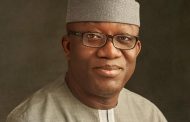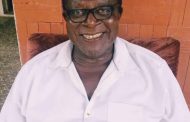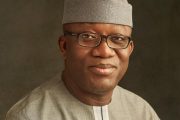75 years on earth, 50 of that in priesthood without entrapment in any unproductive controversies, allegations, scandals or acts out rightly prejudicial to peaceful co-existence in a very tempting country such as Nigeria is a big plus for which any soul would be thankful to God. Yet, that has been the experience of John Cardinal Onaiyekan who has just retired from what might be called active service if it were in the temporal space. He has not just accomplished it but has done so in tandem with the wisdom that the road to greatness must be truly great. His road to greatness has been truly great. We at Intervention are certain that this accomplishment needs to be celebrated but also situated in the state of the nation called Nigeria although Catholicism is not a Nigeria specific civilisation.

Archbishop Kaigama who takes over from Onaiyekan at Abuja
The state of the Nation remains worrisome, to say the least. A number of illusions about Nigeria have so collapsed as to warrant that statement. The first to collapse is the illusion that for their own enlightened self-interest, the elite would pact and stick to a consensus about how to keep the nation functioning as a modern entity irrespective of their own internal differences. That illusion has crashed now, given current level of fragmentation, especially among officers who fought to preserve the country from disintegration at a time the world was less sophisticated.
The second illusion is that the entrepreneurial cum middle class elements who have always been at the base of the push for expansion of the democratic space in All such recent exertions across the world would not fail Nigeria. That, too, has crashed. That layer has not demonstrated that sort of orientation in the case of Nigeria. In other words and very surprisingly, there is, right now, not that radical coalition anywhere around and about Nigeria with such an uncompromising and instantly recognizable narrative of Nigeria that leaves no one in doubt that Nigeria is secure. And that no one can trifle with it, no matter how powerful. Armies fight to preserve a nation but it is not armies that keep a nation. It is the legitimation of a nation that keeps it. As things are today, almost anyone can call Nigeria anything and columnists will be quoting him or her to buttress the so-called artificiality of Nigeria. An uncompromising sense of Nigeria is not strikingly observable in the politics of the various flanks of the middle class in Nigeria, suggesting that they are as fragmented as any other class. This is a potentially messy situation especially when added to how there are no political parties in Nigeria as such beyond machines serving as tricycles for one ambitious politician or the other to climb to power. Denied of middle class restraining factor, the country trudges on with too many narratives, none of which has any chance of peacefully enacting the reality it speaks of.
Instead, the combination of these has, in the words of Biodun Jeyifo, left Nigeria as the most unproductive capitalism in the world, driven substantially by unconstrained self-interest and utter brazenness. The implication is that there is nothing to write home about in Nigeria regarding the grand object of protest politics today, much of which is about the realisation of Alternative Modernity rather than just plastic notions of democracy or even Socialism. Absent such a grand pursuit is a war of ‘all against all’, sustained by the enemy images of Others which have sedimented in the past decade and which are bound to explode somehow, somewhere.

His Eminence, Onaiyekan
This is the context in which Onaiyekan, a high profile actor in Catholicism in the country is retiring, one of the very few who can come together and make a decisive or definitive move in the politics of remaking of Nigeria. Nigeria might not be in need of an alternative government but Nigeria can do with a layer of few such actors with the moral authority and agency that can subvert the vicious domestic and external visualization of Nigeria in the past 15 years as a country heading for implosion. The only reason asserted for such imagination is the country’s ethnic diversity and the wrangling associated with that. While it is true that only a fool will disregard diversity and difference, Nigeria interestingly has no problems with diversity. Nigeria only has problems with the manipulation of diversity.
True as it is that both the Left and the Right in Nigerian politics failed completely to document the cultural resources of various ethnic groups as a crucial input into nation building, the Nigerian people themselves observe no barriers in inter-group relations. Except the fear of Muslims that Christians do not respect Islam enough as for a Muslim woman to be married off to a Christian, there are no other barriers along ethnic, regional and religious divides, from social networks to politics to business. It is only in politics that the vicious struggle for access to oil rents underpins the manipulation of difference. However, the performative implication of narratives means that there is something to fear from the enemy images that the manipulation has produced and which have sedimented and could implode if not carefully managed.
Without suggesting that any one individual can solve Nigeria’s many problems and without imagining that the Church will have nothing more for the retired Cardinal to do, the point here is that a practiced pioneer and pacesetter in the praxis of Dialogue can add value to similar efforts going on with the aim of stabilising Nigeria. Agency is very important in human affairs. In Onaiyekan, Nigeria has a grade 1 agency. When he talks, he talks as a man of God, not as a politician. When he talks, he talks not to win but to clarify. When he talks, he offers and exposes all the other options without threatening anyone. Blessed with good health and relative youth compared to other living Cardinals in Nigeria, John Onaiyekan might have retired only to start another phase, with good prospects of being God’s instrument in securing Nigeria as well as expanding the space for the African and the Black world. So, help us God!




























